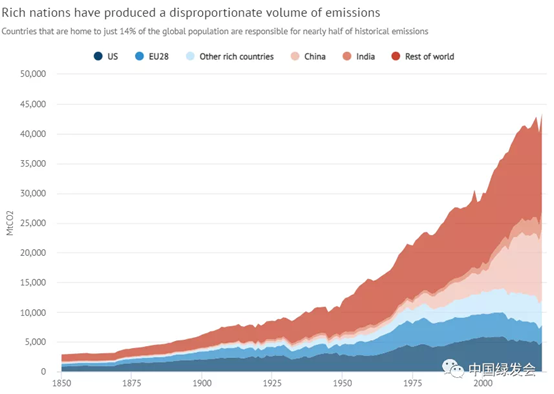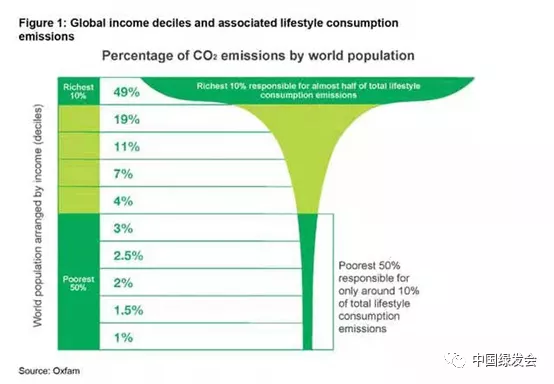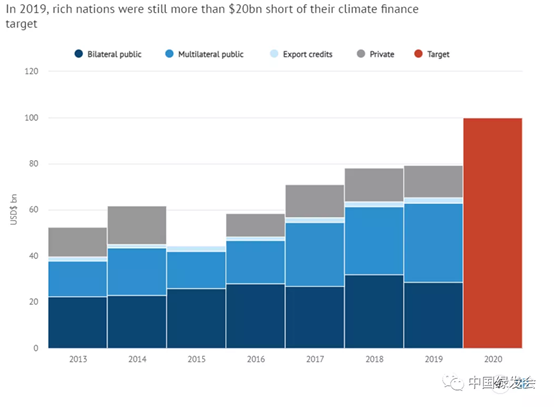Since the industrial revolution, developed countries have caused a tremendous amount of carbon emission. However, right now, they just want erase this part of history. Here, as the author of this article, I will explain the attempts these countries would like to make, in order to shirk their responsibilities for the discharge, as well as poor conditions in which underdeveloped countries have to pay this undeserved list.
Sonam P Wangdi, who comes from Bhutan and is the president of the group of Least-developed countries (LDC), said that although many nations during the COP26 made promises about their National Determined Contributions (NDC) plans, if these data stop updating, we are difficult to verify how effective their efforts are.
Considering that developed countries always keep silent upon the 100-billion financial aid for the reduction of carbon emission, I will talk about this issue in the following paragraphs.
About forty percent of a nation’s carbon emission will be consumed by ocean or land, the rest will invariably go into the atmosphere, causing climate change. Given that we need to limit the amount of carbon existing in the air, we will definitely require every country to reduce the emission and keep them well informed how to increase the intake of carbon by sea and forest.
However, how can we determine the exact amount of carbon emission for each country?
This is pretty tricky since countries in different conditions are unwilling to reach a consensus.
Every nation in meetings is not satisfactory towards the distribution of the reduction plan. Therefore, the final decision would be a trade-off.
Although UNFCCC consistently admits that different countries have different capabilities on dealing with environmental issues, some scholars believe that under the pressure from wealthy countries, this principle has been minimized. It is unreasonable to mandate each country to the same contribution. And what is worse is that most wealthy industrial countries fail in making enough contribution they once promised.
Therefore, through this unfair solution, developed countries can leave more opportunities for their oil companies to discharge more restricted gases, while poor nations will be put in an inferior condition.
In 2009, developed countries agreed to provide $100 billion to support climate actions in relatively poor countries. From then on, this number has been cited incessantly, till now. According to the data from Organization for Economic Co-operation and Development (OCED), this goal has not yet been realized.
What is worse is that most financing is processed in form of loan, which increases the financial pressure of the most marginalized countries. Oxfam reckons that, if the sixty billion dollars in the financing is discounted, the true value of this climate finance would be $1.9-22.5 billion.
We must give enough emphasis on climate projects in details. According to the proposal about the NDC made by China, China will actively carry out a couple of south-south cooperation with other developing countries. China will spare no pains to support green and low-carbon development in developing countries and stop overseas coal-electricity programs. We are looking forward that developed countries, some of which are in debt for a pretty long time, will finally fulfil the promises that they once made.
References:
https://climateequityreference.org/
https://www.carbonbrief.org/in-depth-qa-what-is-climate-justice

Source:Carbon Brief, Highcharts.

Oxfam: the wealthiest ten countries in this world caused nearly half of the whole emission data,
while the poorest ones merely did the one tenth.

For more fresh news, please pay closer attention to CBCGDF Media. Our media is a matrix and consists of around fifty virtual platforms, advocating ecological civilization, promoting green development, improving science literacy of the public, protecting biodiversity, tackling crises of climate and public health, helping realize carbon neutrality and emission peak, and boosting the construction of a Shared Future for All Life on Earth.
Original Chinese article: https://mp.weixin.qq.com/s/eSnBXAZlrJh2-HCIJIlt9A
Translator/ Kim
Contribution
https://www.paypal.me/CBCGDFChina
http://www.cbcgdf.org/English/ConfirmDonaTion/0.html
